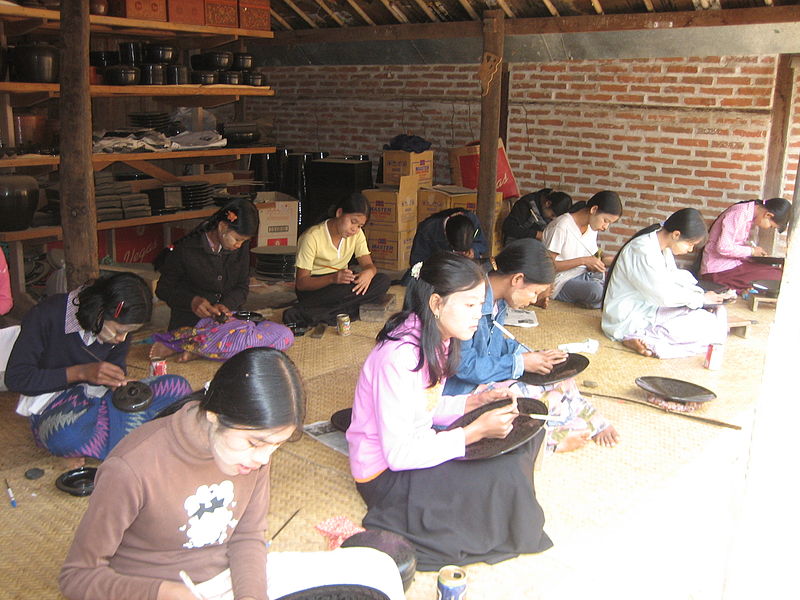Myanmar’s garment manufacturers say dozens of companies will be forced to close down, if the government approves a proposal that would set the daily minimum wage at 3,600 kyat (US $3.21) and the hourly minimum wage at 450 kyat ($0.45).
The project's sponsor is the parliament-appointed National Committee for National Wage, which spent 18 months holding consultations with various stakeholders across the country. The proposed wage hike is also a response to the poor conditions of factory workers.
The new proposed minimum wage is a compromise between the 4,000 kyat demanded by trade unions and 2,500 kyat offered by the business sector.
Earlier this month, the Myanmar Garment Manufacturers Associate warned that many companies cannot afford the 3,600-kyat minimum wage proposal, saying the reform could affect the jobs of 200,000 factory workers. At least 90 factories operated by Chinese and South Korean companies have already signaled that they will close their doors, if Myanmar passes the wage reform.
Myanmar garment workers are among the lowest paid laborers in the Asia-Pacific region. If the wage increase is implemented, Myanmar workers would earn slightly more than their counterparts in Bangladesh, but still less than workers in Cambodia and Vietnam.
Meanwhile, some global clothing networks have come out in support of Myanmar's proposal to raise the minimum wage. Ethical Trading Initiative issued a statement urging the government to improve the living standards of workers:
We urge Myanmar’s government to take a firm stance to help improve conditions – it is vital to ensure that the first ever minimum wage level doesn't lock workers from one sector into poverty.
Fair Labor Association, whose members include companies like as Adidas, Gap Inc, and Tesco, disagreed with the assertion of Myanmar’s garment manufacturers, who say the wage hike would negatively affect the country’s investment prospects:
In our view, the suggestion made by trade associations that a higher minimum wage will discourage international investment is based on a false premise. A minimum wage set through consultation with relevant stakeholders will attract rather than deter international companies buying garments from Myanmar, who have committed to paying living wages through their supply chains.
Clothing company H&M didn’t say if it agrees with 3,600-kyat proposal, but it did advise the government to agree to a uniform minimum wage increase across all sectors:
If the garment industry wage levels are lower than other industries, it will not be able to attract and retain a skilled labor force, which it needs to develop and grow into a thriving economic driver.
Minimum wage plan prompts hundreds of complaints from both workers, employers #Myanmar | http://t.co/1ujs5zUhTY pic.twitter.com/Bpq52NbUKF
— The Myanmar Times (@TheMyanmarTimes) July 16, 2015
Some trade unions have accepted the wage increase proposal, but there are other labor groups, like the All Myanmar Workers Union Network, that continue to campaign for a 4,000-kyat daily minimum wage. According to trade union activists, companies will cut costs by reducing the other benefits workers receive, in order to offset the higher minimum wage, prompting some to advocate a daily minimum wage set at 4,000 kyat:
When the owners accept a minimum wage as the government is proposing they are planning to cut off other extra costs like transportation for the worker. So if the workers are going to be able to afford to survive the minimum wage must be fixed at K4000.
The video below shows the protest of about 200 factory workers who are demanding an increase in the daily minimum wage:







